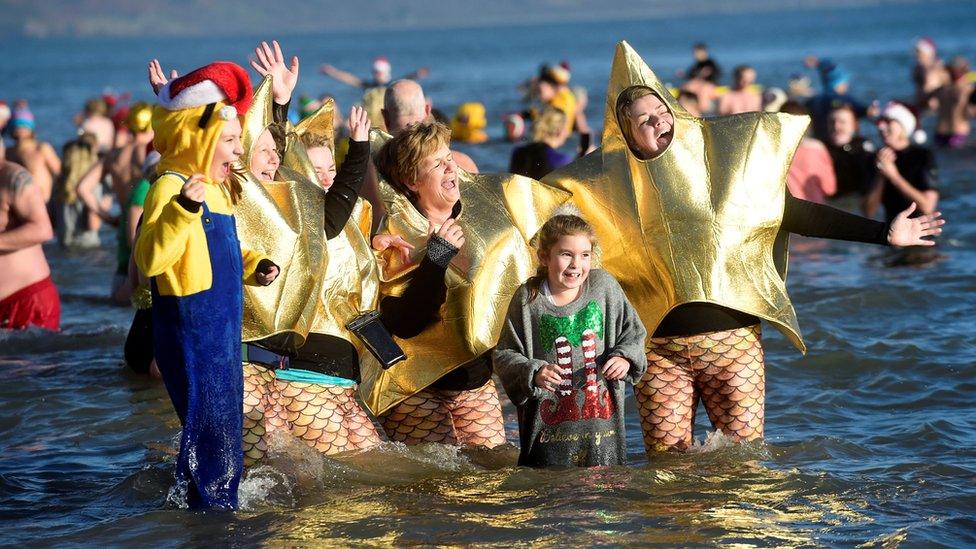Tenby: Cliffs plagued by cat-sized rats, say residents
- Published
A popular seaside town has a rat problem that residents say is getting worse
Rats that are claimed to be "as big as cats" are feared to be causing the erosion of cliffs at a tourist hotspot.
Footage of the rodents shows them scuttling around Castle Beach in Tenby as waves crash against the rocks below.
Residents said the problem had been been getting worse in recent months.
Pembrokeshire council urged people not to feed birds or drop food, and said specialist staff were examining the cliffs where the rats are thought to be nesting.
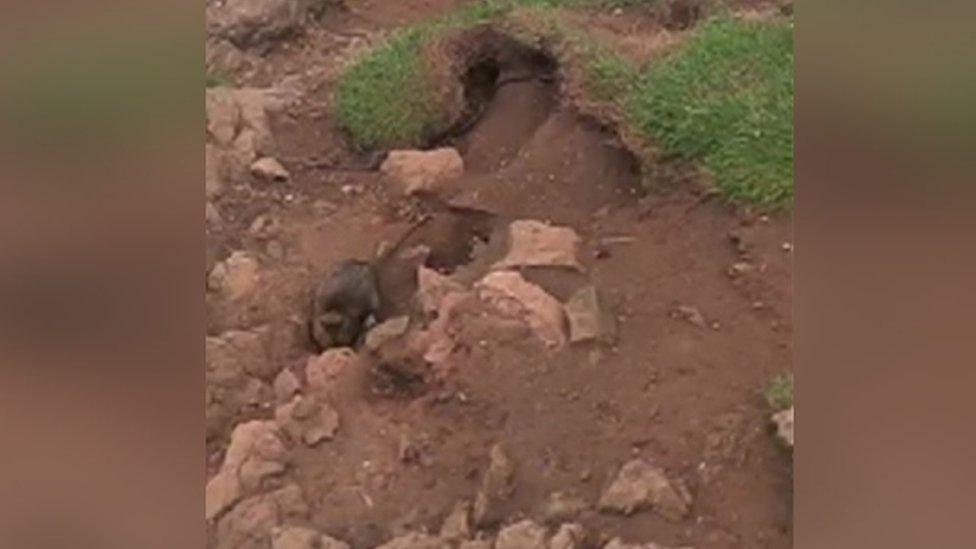
The council has urged people not to drop food
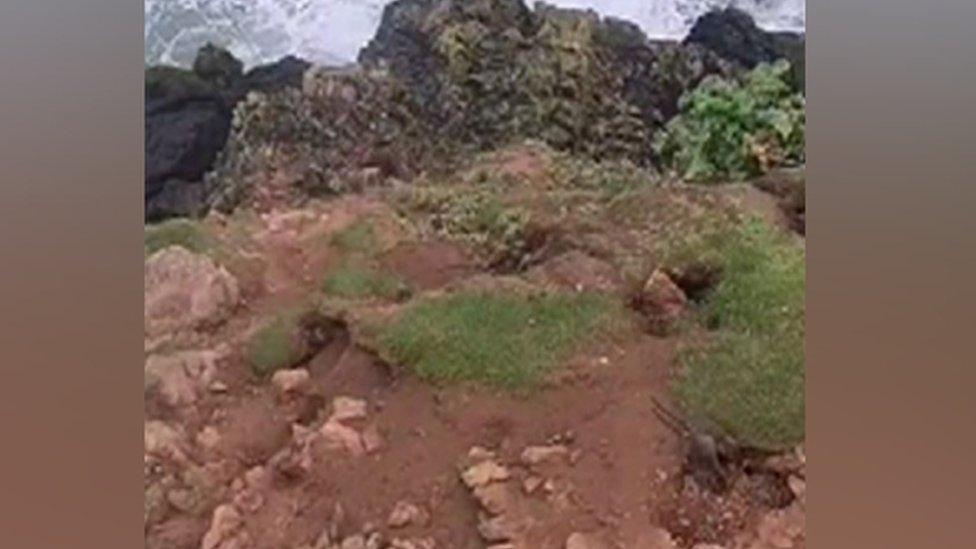
There are fears the rodents could be worsening erosion of the cliffs
Boatman Roger Miles said rats had become a worsening problem over the last few months, adding that it was "really concerning".
"Early evenings, dusk, early morning, rats all over the place really," he said.
"There's a certain area where you see parts of the cliff have been eroded."
The rodents, he claimed, were larger than normal.
"Rats as big as cats sometimes, they're really big rats," he said.
He urged the council to get rid of the rodents, saying: "It's been going on for a long time, it's been left alone and something needs to be done about it."
Resident Derek Brown said: "It's the structural damage they might be doing to the cliff face that is the big worry."

Roger Miles said the rats were as big as cats
Michael Lindsay has run the town's Dennis Cafe for 30 years and said there had always been a problem with rats in the area, but there used to be "a guy" who dealt with them.
"We've put bait down now," Mr Lindsay said.
"We probably see a rat at least once a week running around on the roads."
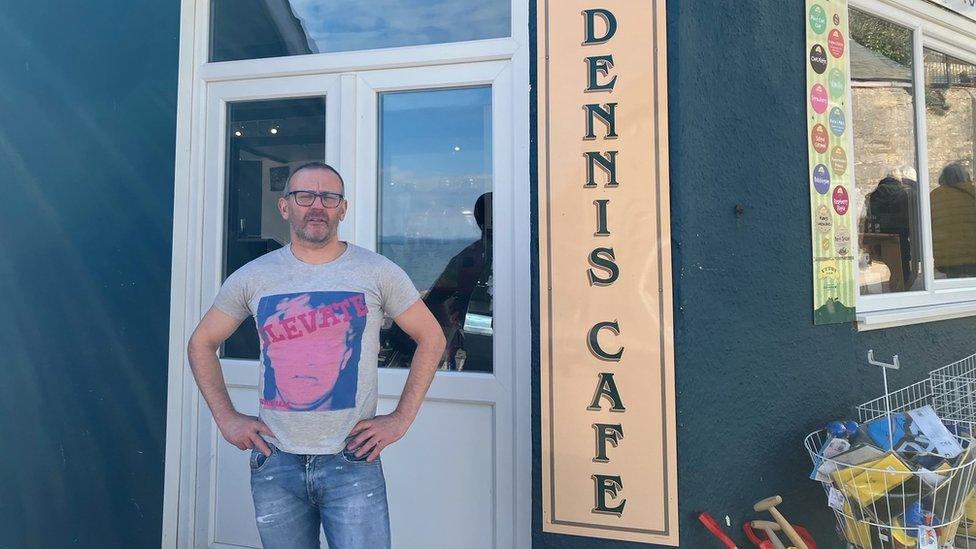
Michael Lindsay said he saw a rat at least once a week
Poet Clive Dobbins, from Tenby, found a rat in the lounge of his High Street flat two months ago.
"Suddenly this thing dashed and hit my leg," he said.
"Quite a few people have told me, especially on this mountain here, they've seen clusters of them."
But he had only seen one in 10 years, he said.
A Pembrokeshire Council spokesperson said: "We are aware of issues with rodents and the need of additional baiting points, and are working to address this concern.
"We are using specialist staff to address the access to the cliff face: this may also allow us regular access for the future as well."
- Published24 February 2022
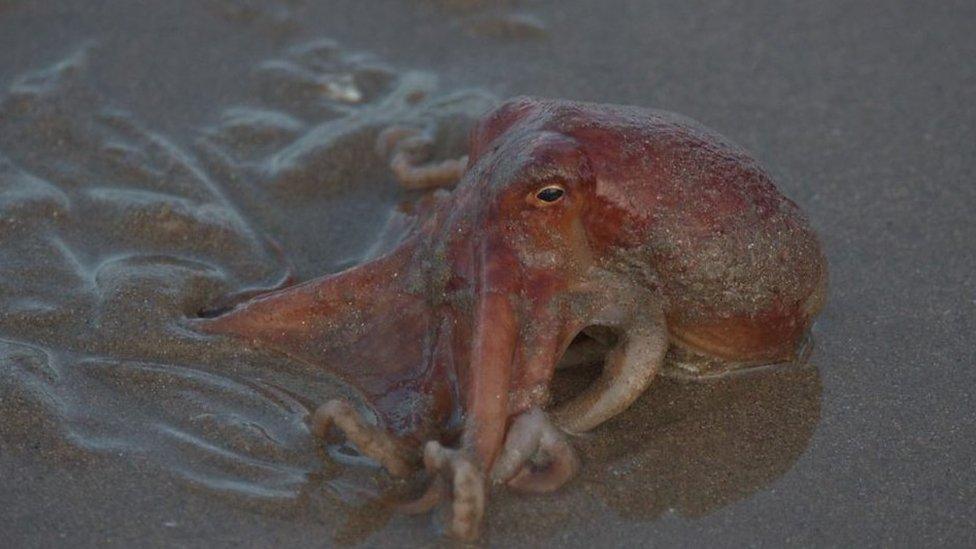
- Published8 July 2022
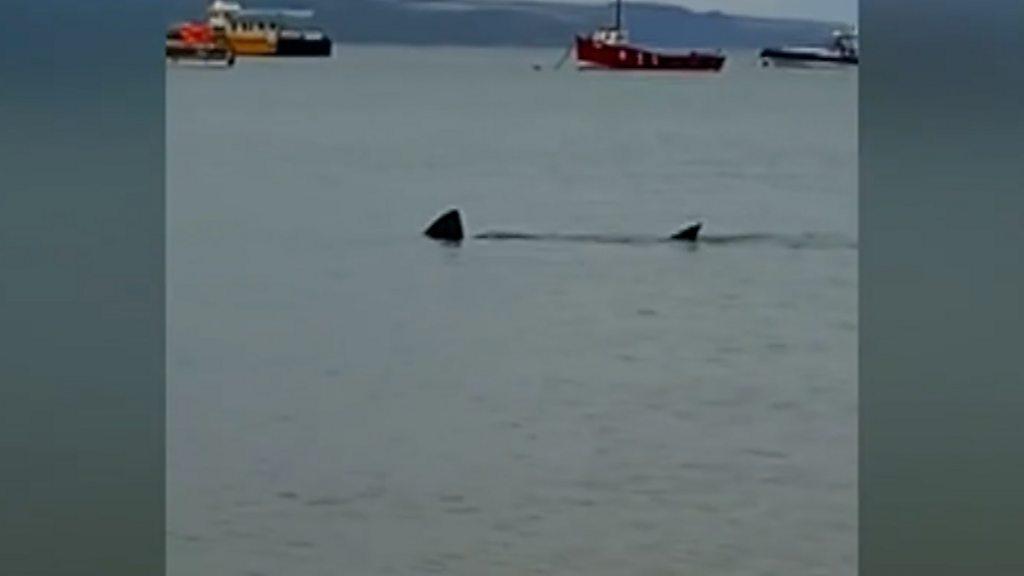
- Published30 April 2022

- Published26 December 2022
